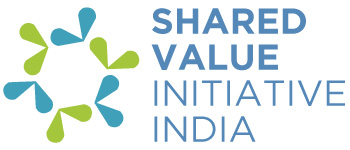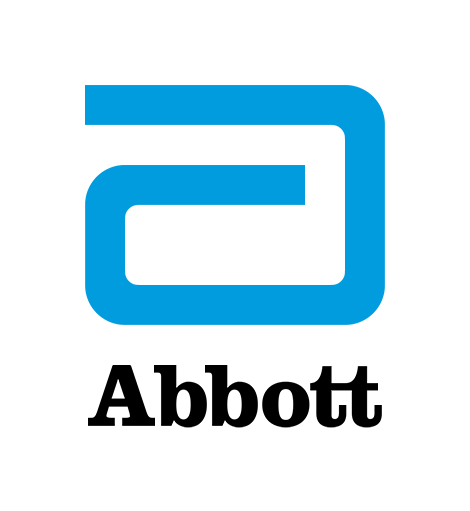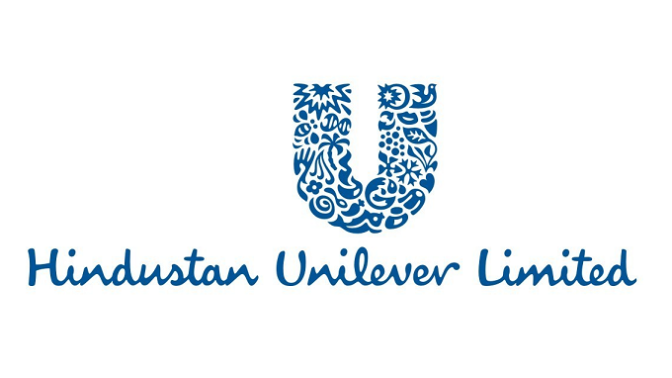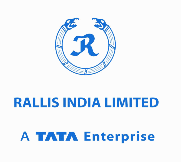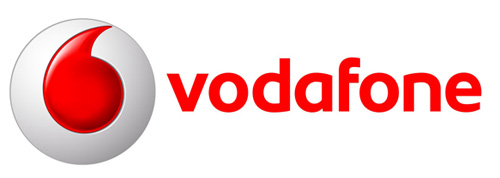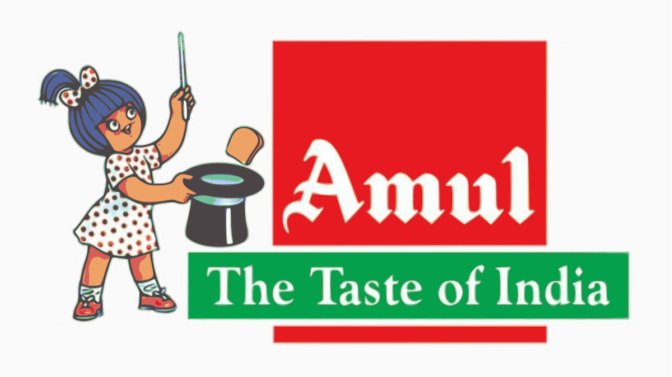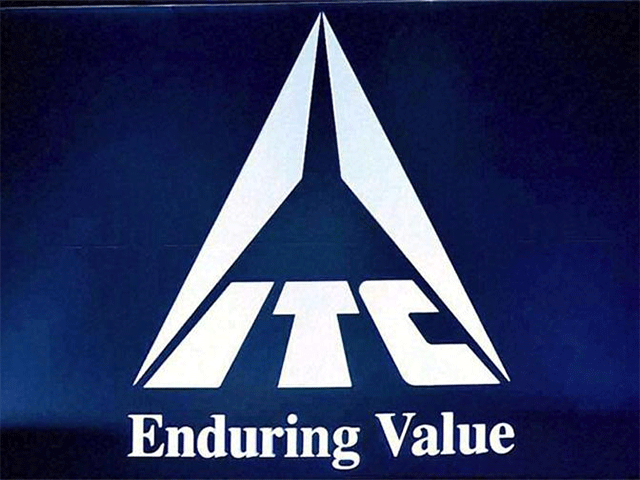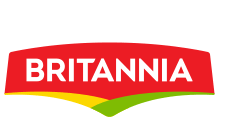[vc_row][vc_column][vc_tta_tour style=”modern” color=”sky” spacing=”2″ gap=”2″ active_section=”1″ no_fill_content_area=”true”][vc_tta_section title=”Part 1: Introduction – Inclusive Business List” tab_id=”1455712945782-7fe1526b-926c”][vc_column_text]
Introduction – Inclusive Business List
The list of enterprise advances the idea that companies should act as a force for good in society and think beyond the traditional boundaries of minting profits and providing employment.
Shared value is the next big chapter in transforming the role of business in society. It is the concept which can make companies rethink their strategies. Several companies are engaged in doing this and have essentially paved the way for long-term growth by integrating societal good as part of their business strategy. We call them as Inclusive businesses.
Enterprises across the world have identified that businesses cannot operate in isolation. These enterprises are moving towards the paradigm of Creating Shared Value but are not there yet completely. This list recognizes that they have moved away from Corporate Social Responsibility and are paying equal attention to their stakeholders. However, they are not entirely transformed into a shared value enterprise. So this ‘Inclusive Business List’ is being done to encourage such enterprises and motivate them further to become shared value enterprises.
Inclusive businesses highlight the companies that are changing the way companies do business and have included societal development as part of their corporate strategies. It comprises of 21 firms that are committed to bringing a change in understanding the key societal challenges and addressing them through their initiatives. The list of enterprise advances the idea that companies should act as a force for good in society and think beyond the traditional boundaries of minting profits and providing employment. It is a unique initiative to identify, assess and recognise the organisations operating in India, which are creating a measurable socio-economic value by identifying and addressing common social and environmental problems around their businesses.
The idea of an Inclusive business list will encourage organizations to aspire to become the change agents by adopting shared value related activities and build business models around these in the future. Companies in the list have pushed the envelope for CSR, but they also need to scrutinize further to be labeled as Shared Value Enterprises. Different areas intersecting with the business activities have been identified and addressed by the companies in the list, an enterprise like Jain Irrigation is in the inclusive business list because it is making a significant profits through its innovative strategies at the grass-root levels.
Organizations on the list were mapped by their past and present activities that are thought to be socially inclusive, and on how well these have a potential to adopt the principles of shared value as a part of their business strategy in the future. A well-established assessment approach has been deployed, and a thorough evaluation was done of several enterprises out of which 21 have been recognized in the Inclusive Business List. Companies in the list were assessed on four broad parameters:
-
Social problem addressed
-
Geographical reach and social activities
-
Investments in community development
-
Link between the social issue and company’s competitive position and strategy
The list comprises of companies that are on a journey to transcend the limitations of the traditional business concepts and, addressing key societal challenges in the area of health, education, social inequality, environment and financial inclusion.
[/vc_column_text][/vc_tta_section][vc_tta_section title=”Part 2: Methodology” tab_id=”1455712945857-231d13a2-72bf”][vc_column_text]
Methodology
A well-established assessment approach has been used for identification and recognition of organizations.
The list of enterprises is a unique initiative to identify, assess and recognize the organizations that are creating a measurable socio-economic impact with their business. The idea is to inspire organizations to make organizations move towards the paradigm of Creating Shared Value. Organizations that are working towards tackling social issues, and making a positive difference in the society were considered for the list.
Assessment Approach
The organizations were mapped by studying their past and present activities, and on how well they have adopted the principles of shared value as a part of their corporate strategy. A well-established assessment approach has been used for identification and recognition of organizations.
-
Identification of companies: As the first step, companies advancing social business initiatives via their business activities were listed. It includes the enterprises that will be able to imbibe the spirit of shared value and are actively involved in doing inclusive businesses at the ground level.
-
Setting Parameters: Companies have been assessed on the following parameters
-
Social issue and challenge being addressed
-
Coverage of activities creating a positive impact on society
-
Link between social problem being addressed and company’s competitive position and strategy
-
-
Assessing Companies: Shared value experts discretely analyzed the outcomes of assessment based on the aforementioned parameters
-
Shortlisted companies were thoroughly assessed, and 21 enterprises were ultimately selected.
Through this list of 21 enterprises, we are trying to promote the idea that concepts like CSR and corporate philanthropy are critical but have a limited impact. Companies need to beyond these concepts and advance their journey towards shared value creation. The list of enterprises illustrates examples of 21 such enterprises that have overcome challenges of scalability and investments required for being in the Inclusive business list. These organizations have the potential to be the shared value enterprises of the future.
[/vc_column_text][/vc_tta_section][vc_tta_section title=”Part 3: FMCG” tab_id=”1455713112458-74ea0c6d-2dae”][vc_column_text]
FMCG
The list of enterprises include Hindustan Unilever Limited, Britannia Industries, Nestle, ITC, Mother Diary, Amul and Cargill India.
[/vc_column_text][vc_single_image image=”2094″ img_size=”medium” onclick=”custom_link” img_link_target=”_blank” link=”https://www.hul.co.in”][vc_column_text]
Hindustan Unilever Limited
Hindustan Unilever Limited (HUL) is India’s largest Fast Moving Consumer Goods Company with a heritage of over 80 years in India and touches the lives of every two out of three Indians. HUL works to create a better future every day and helps people feel good, look good and get more out of life with brands and services that are right for them and others. They have 35 brands spanning 20 distinct categories such as soaps, shampoo, skincare, et al. and has emerged as an inclusive business leader through its several effective and innovative programs.
Hindustan Unilever is implementing social value creation by tapping opportunities into their value chain and expanding their reach through different activities and initiatives aligned with their business operations & practices. Out of various projects, Project Shakti has been able to deliver and create a positive impact on the people at the bottom of the pyramid. Launched in 2001, Project Shakti, empowers underprivileged rural women by training them in health and hygiene and allowing them to undertake income-generation activities. The women, known as Vanis (communicators), sell soap, shampoo, and other personal care products through social forums such as schools and village gatherings.
Project Shakti Entrepreneurs who are commonly known as Shakti Ammas reach out to over 4 million households across 1,65,000 villages spread over different states. These 4 million household forms a new market for HUL where its products are sold, generating revenue for the company. This model ensures an expanded reach to HUL’s products and employment opportunities to the overlooked sections of the society. HUL earns revenue and provides a means of livelihood to approximately 70,000 women entrepreneurs. It promotes skill development by providing training in sales practices, financial knowledge, and bookkeeping to help them become micro-entrepreneurs. The company is set to increase the number of Shakti entrepreneurs that they recruit, train and employ to 75,000 in 2015. Shakti Ammas are complemented by 48,000 Shaktimaans, who are typically the husbands or brothers of the Shakti Ammas. Shaktimaans sell HUL’s products on bicycles in surrounding villages, covering a larger area than Shakti Ammas can cover on foot.
Alliances with telecom & banking companies have also been established to increase the income of the Shakti family with the sale of prepaid telecom currency, SIM card activations and by acting as a banking correspondent. Low-cost IT solution called Shakti Mobile, mini – ERP running on an entry-level smartphone, allows Shakti Ammas to take bill orders and manage inventory. The mobile based application also offers promotional & discount offers to the consumers. Traditional business models didn’t work in the hinterland, and the model of micro-entrepreneurs in the rural area created a new distribution system for HUL, thus, giving them a competitive advantage over its peers.
HUL is one such company that believes that creating income is more important than generating sales alone. The projects initiated by the company have served as a catalyst for opening new markets as well as creating rural microeconomics impacting many households. It resulted in increased revenues for HUL and helped in sustainable livelihoods of rural people.
Apart from its various large scale programs and initiative, HUL has been handling various societal issues by launching new products. The company has also addressed health problems in the area of poor hygiene for rural India. Lifebuoy, an 18-gram bar, was introduced in 2002 with a price of two rupees and was adequate for one person to wash their hands once a day for ten weeks. Thus, making the soap affordable even to people with no income. The company also launched education campaigns in eight Indian states where deaths from diarrhoea-related diseases are highest, and soap sales are lowest. Lifebuoy has achieved a double-digit growth to become the world’s number one antibacterial brand and presents an excellent example of how brands can serve a social purpose while making a commercial success.
HUL is highly responsible towards the environment it operates in and aims to achieve the following missions by 2020. Under its sustainable living plan, HUL plans to double the size of its business while reducing their negative impact on the environment and increasing their positive social impact.
-
Improve health and well-being of more than a billion people
-
Reduce environmental impact of its products
-
Enhance the livelihoods of millions working across their value chain
As an increasing number of people are opting brands with a social touch, Unilever’s initiatives will open more new avenues of market opportunities and growth for HUL.
[/vc_column_text][vc_single_image image=”2074″ img_size=”medium” onclick=”custom_link” img_link_target=”_blank” link=”http://britannia.co.in”][vc_column_text]
Britannia Industries
The food industry can play a leading role in addressing the nutritional needs and challenges of society ranging from eliminating hunger and fighting malnutrition. The sector is a crucial employer in the majority of developing nations providing a source of livelihood to millions of people. Food companies can create a competitive advantage for themselves by fortifying their products with vitamins and minerals that can reduce nutritional deficiencies.
Britannia is one of the leading food company and one of the most trusted, valuable and popular brands in India delivering products in 5 categories through its 3.5 million outlets across India. The company estimated that nearly two out of every three Indian children suffer from anaemia. The disease, anaemia, in children limits their ability to focus and diminishes their energy affecting their education and other day to day activities. It is not visible to the naked eye, so the parents fail to identify and understand the symptoms, leaving the ailment undiagnosed and untreated.
Britannia Nutrition Foundation works to fight malnutrition in the country by providing products enriched in micro-nutrients to curb malnutrition among the underprivileged children. The company tested the idea of a micronutrient-fortified biscuit in 2007 through a partnership with the Global Alliance to Improve Nutrition (GAIN). A pilot program reaching 150,000 children was a success, resulting in improved haemoglobin levels. The company went to market with a new banana-flavoured, iron-fortified Tiger biscuit. The biscuits with Ferrous Fumarate also contains an iron salt recommended by WHO for cereal based products, a source of iron that helps in fighting anaemia among malnourished children. They have an appealing design to attract children and are affordable by the weaker section of the society. The brand advertising of Britannia’s products has been more inclined towards issue awareness. So to address the challenge of lack of access to mass media in rural India, the company has been supporting local efforts to educate people on issues of childhood iron deficiency & malnutrition. It has partnerships with Nandi Foundation & GAIN (Global Alliance for Improved Nutrition) to expand its nutrition initiative through midday meals in schools.
Tiger has been the largest product for Britannia since 1997 and is also the second most business brand. Although, the profit margins for the product is small but due to its societal benefits the product sales are high in volume and delivers profits. During a 2009 pilot study in North Delhi, Britannia and the Navjyoti India Foundation found that consumption of fortified Tiger biscuits, in conjunction with treatment for hookworms, raised the iron levels of more than 300 anaemic children by an average of more than 25 percent in 90 days.
Improving nutritional deficiencies by Britannia has helped it maximize both business and social benefits.
[/vc_column_text][vc_single_image image=”2089″ img_size=”medium” onclick=”custom_link” img_link_target=”_blank” link=”https://www.nestle.in”][vc_column_text]
Nestle
NESTLÉ is the world’s leading Nutrition, Health and Wellness company. Its mission of “Good Food, Good Life” is to provide consumers with the best tasting, most nutritious choices in a wide range of food and beverage categories.
Nestle is a business pioneer leading the way in adoption of the shared value concept as a part of their core business strategies globally. The company does business in a way that delivers long-term shareholder value and benefits society.
Nestle is socially inclusive in the following three areas:
Nutrition: Providing nutritious products at an affordable price that offers real health benefits to consumers. Products are more accessible to consumers through innovations and partnerships. Nestle’s START HEALTHY, STAY HEALTHY is an educational initiative in partnership with doctors that aims at making right nutrition as a way of life and create a healthier generation. It launched Nestle Healthy Kid Programme in the year 2009 to make children understand the importance of nutrition and physical activity. Till the year 2013, over 27000 students in India, Bangladesh, and Sri Lanka have successfully participated in the programme. Nestle has 32 research, development and technology facilities worldwide with one of them in India to help Nestle’s ability to respond to consumer needs faster.
Water: Optimizing the use of water in manufacturing and sourcing processes in ways that benefits others in the supply chain. They also use the resources more efficiently across the entire value chain. Nestle’s water awareness programme reaches out to school children, farmers, women and employees. Through its Clean Drinking Water Project, 135,000 village school students have benefited directly across the South Asia Region. India has invested in 172 water projects, and many more are in the planning stage. Waste water discharge per tonne of product in India reduced by 78% due to efficient processes that help in reducing the water need.
Rural Development: Supports farmers in rural areas that assist them to provide with raw materials required for their operations. It secures continued access to quality inputs and strengthening the customer base. It further improves conditions for local economic and social development. Nestle’s Dairy Development Programme for Women Dairy Farmers have benefitted over 58,600 women. Through this programme, special training programmes are organized for village women on good dairy farming practices. It has ensured sustainable livelihood to dairy farmers across 33 districts. Nestle’s milk factory in Moga has around 110,000 farmers that supply nearly 1.3 litres of milk every day thereby creating a flourishing milk economy in Moga. This has resulted in a sustained long-term growth for both Nestle and the community.
[/vc_column_text][vc_single_image image=”2109″ img_size=”medium” onclick=”custom_link” img_link_target=”_blank” link=”http://www.itcportal.com”][vc_column_text]
ITC
ITC’s business and value chain generate sustainable livelihood for around 6 million people most of which belongs to the economically weaker section of the society. It has a diverse product portfolio offering tobacco, hotels, paperboards, packaging, agri-business and branded apparels. ITC identified business opportunity in uplifting the agricultural practices of the farmers. Since the sector contributes nearly 17% to the nation’s GDP, and the plight of farmers is often ignored by the government.
ITC’s Agri Business Division that is one of India’s largest exporters of agricultural commodities and has opted the e-choupal business model. E-Choupal is conceived as a more efficient supply chain that delivers value to customers across the globe on a sustainable basis. The model has been specially designed to tackle the challenges posed by fragmented farms, the involvement of middlemen & intermediaries, and weak infrastructure in the agriculture sector.
This programme has empowered farmers, raised rural income and developed the rural ecosystem. It was launched as an effort to re-design procurement of soy, tobacco, shrimp, wheat and other cropping material required by the company. The model has created highly profitable distribution and product design channel for the enterprise. Under this model, ITC procures its material directly from farmers that result in cost savings in warehousing and delays. It also led to consistency and predictability in the supply chain. eChoupal promotes the use of IT to set up vast networks and logistics even in remote areas that are not accessible. This has brought transparency, increased access to information, catalysed rural transformation while enabling efficiencies and low-cost distribution that make the system profitable and sustainable.
Farmers are provided with critical information and relevant knowledge on farm productivity, prices and markets through the e-Choupal digital infrastructure and also access to quality inputs for better productivity. The company has set up integrated rural service hubs called Choupal Saagars which offer multiple services under one roof. Sustainable livelihoods opportunities for over 40,000 rural women as part of its various innovative programmes either through micro-enterprises, or assistance with loans to pursue income generating activities, including rolling incense sticks for its agarbatti business.
ITC also has a dedicated commitment on waste recycling that is implemented by its paperboards and specialty papers division to focus on ‘reduce-reuse-recycle’ approach to protect & restore the environment. Ultimately the program enables provision of cost-competitive raw materials to industries such as the paperboards and paper that have led to a cascading effect on improving the income of rag-pickers and municipal workers.
The e-choupal initiative shows us how a large corporation can combine a social mission as a part of its business model and create a positive impact on the society.
[/vc_column_text][vc_single_image image=”2087″ img_size=”medium” onclick=”custom_link” img_link_target=”_blank” link=”http://www.motherdairy.com/MotherDairyPages/home.aspx”][vc_column_text]
Mother Diary
Mother Dairy Fruit & Vegetable Pvt. Ltd., set-up in the year 1974, is a wholly owned company of National Dairy Development Board (NDDB). The company has a diverse portfolio with products in edible oil, fruits & vegetables, milk & milk products.
Mother Dairy’s business philosophy is inherently linked with the co-operative movement in India and is focused on serving farmers, rural societies, and consumers fairly. The business model adopted by Mother Dairy assures a platform for farmers to sell their products. Their objective is not to maximize the profits but to provide the best price to farmers for the products that they supply.
The value chain of mother dairy is designed such that the procurement of its product benefits the farmers and the rural people. Their value added products contribute to the bottom line and enable growth to a larger level. Mother Dairy ensures that milk producers and farmers continually receive market price for offering milk, milk products, and other food products.
Mother Dairy also promotes the Bulk Vended Milk, better known as ‘Token’ milk. It serves hygienic milk to the consumer in an unpacked condition. It sells approximately 10.5 lakh liters of token milk in Delhi alone and thus ensures more than 5 tons less consumption of plastic in Delhi every day. Thus, Mother Dairy has been addressing a social problem and driving economic value for themselves.
These mutually benefiting activities culminate to a competitive price to the consumers with guaranteed supply of Mother Dairy’s products. It also works towards improving the standard of living of farmers. They ensure that the farmers get an appropriate price for their yield, educate them on better farming techniques, hygiene practices and modern methods of dairy farming. This initiative eventually leads to farmers being independent and financially self-sustainable. Mother Dairy gains a competitive advantage by controlling the entire chain and extracting value at every point of the chain.
Mother Dairy has positively impacted 250,000 individuals across the country by addressing the social challenges in the area of agriculture.
[/vc_column_text][vc_single_image image=”2073″ img_size=”medium” onclick=”custom_link” img_link_target=”_blank” link=”http://www.amul.com”][vc_column_text]
Amul
Amul was founded in 1946 to stop the exploitation of farmers by the middlemen. To get rid of the middlemen, the farmers formed their own co-operative that had procurement, processing and marketing under their control. The success made by Amul then could be attributed to four factors – farmers owned the dairy, representatives elected by them managed the village societies and district union, professionals were employed to operate & manage the dairy business, and the co-operatives were sensitive to the needs & demands of farmers.
Amul’s model of dairy development is a three-tiered structure of the dairy cooperative societies at the village level joined under a milk union at a district level. The three-tier structure of Amul eliminated the middlemen by procuring milk from the farmers and supplying it directly to the consumers.
Millions of farmers and their families have been ensured a better standard of living through the non-exploitive business model of Amul. The model has helped India to emerge as the largest milk producers that pour their milk in 1,44,500 dairy cooperative societies across India. Processing of milk is done in 184 District Co-operative Unions and marketed by 22 State Marketing Federations. Amul’s business model has become an example for many and has paved way for different enterprises to adopt the same approaches.
Amul has been serving millions of people while benefiting the society and deriving economic benefits. It has adopted and implemented an ideal model showcasing inclusive nature of the business. The management strategy focuses on uplifting the standard of living of farmers which ensures a continuous supply of products to the consumers. The reformist decisions by Amul has resulted in inclusive growth through its work with dairy farmers at the grassroots level, changing & enhancing lives and empowering women, and at the same time deriving business benefits. Amul offers around 80% of the consumer money back to the farmers compared to 35-40% in the western markets. It has meaningfully contributed to building inclusive growth creating a brighter future not only for some but all citizens. Its activities of helping the people at the bottom of the pyramid have served an important milestone in the advancement of societal development. Amul’s model of development has been replicated across different states and benefited nearly 100 million farmers throughout the country.
Amul has not been far behind in implementing innovative solutions to its customers. Their IT network has linked production centres with the sales office and dealers by VSAT & e-mail connectivity.
The company also has the commitment to protect the environment and actively works towards it through its tree plantation initiative. Since 2007 to 2014, 518 lakh trees have been planted by the milk producers of Gujarat Dairy Cooperatives. A unique feature of this tree plantation programme initiated by the dairy producer is that they protect the tree saplings till it survives and grows into a tree.
Amul is not just a brand, in fact, it has grown into a movement that represents economic freedom of farmers. It has instilled a feeling a confidence and self-respect among farmers and have encouraged them to dream and to hope.
[/vc_column_text][vc_single_image image=”2075″ img_size=”medium” onclick=”custom_link” img_link_target=”_blank” link=”https://www.cargill.co.in/en/index.jsp”][vc_column_text]
Cargill India
Cargill started its operation in India in the year 1987. The business includes food ingredients, refined oils, wheat, flour, grain and oilseeds, sugar, cotton, animal feed and trade and structured finance. Cargill provides quality food, agriculture, financial and industrial products and services to the world.
Cargill’s decision to fortify oils in the year 2008 acted as the catalyst for oil fortification trend in India. They fortified their edible oils – NatureFresh and Gemini to bring a product to the market that helped nourish millions of people suffering from malnutrition. Nourishing India is the cornerstone of their business practices, and they have various programs to improve nutrition in India. Fortification of edible oils produced in India with Vitamin, D & E, was an important move by Cargill as it sells more than half million ton of edible oil in India each year.
Cargill realized that edible oils is the staple product for Indians and used in almost 99% of Indian households. Fortifying edible oils have helped the population to fight for issues like blindness to vulnerability to infections. Following this trend, many competitors swayed into action and adopted oil fortification. Thus, one act of doing a good spread to other edible oil manufacturers that ultimately protected the people of India from malnutrition.
To improve the nutrition and food security, they established India Food Banking Network, together with Global Food Banking Network (GFN) to support feeding programs across India. They have also committed themselves to make fortified food available through government’s public distribution system. The company has also been improving education and livelihoods by implementing programs like Kutch Livelihood & Education Advancement Programs in Partnership with CARE. It will help uplift the poor farmers by increasing their income opportunities and also improving access to primary education for children. The program aims to impact 40,000 children, 9,000 households, and over 200 villages. Cargill seeks to develop the lives of farmers in Kutch through ‘earning and learning’.
Different projects have been started to support rural and community development. The company is keen to bring about positive and measurable improvements to society through its initiatives and activities that are revolving around its core value proposition. Some of their community programs include
-
Works with United Way Delhi to alleviate urban poverty.
-
Sponsors students’ education in rural areas of Andhra Pradesh through Rural Development Foundation.
-
Supports Pragati Vatika School in Gurgaon to provide education to children of daily wage laborers.
-
Teamed-up with Mobile Crèches and adopted a daycare center for children of construction workers.
Cargill continually innovates products, solutions, services to meet the needs of the customer.
[/vc_column_text][/vc_tta_section][vc_tta_section title=”Part 4: Health” tab_id=”1455713113516-f0a6c673-adf4″][vc_column_text]
Health
The list of enterprises include Vaatsalya and Narayana Healthcare.
[/vc_column_text][vc_single_image image=”2092″ img_size=”medium” onclick=”custom_link” img_link_target=”_blank” link=”http://vaatsalya.com/2014backup/”][vc_column_text]
Vaatsalya
Private healthcare companies have been reluctant to cater to the weak or vulnerable population fearing narrowing of profits. Most private healthcare facilities are in the major cities and metropolitans and focus on tertiary healthcare that is most profitable to the healthcare segment. Primary and secondary healthcare accounts for 60% & 30% respectively which leaves an enormous unmet demand in these sectors, especially in the rural areas.
More than 70% of the population of India lives in villages and rural areas while 80% of the hospitals that employs 85% of India’s medical practitioners are in metros and large towns leaving little hope for the rural populace. The majority of the healthcare facilities are in urban/metro areas and not accessible to these families. As a result, poor in the rural areas are forced to choose either the experienced practitioner present in their communities or state run government hospitals that have inadequate treatment facilities and unhygienic conditions. Patients who belong to the weaker section of the society sometimes have to access private healthcare services leaving them with enormous debt. Rural population in India have several barriers to access healthcare facilities including limited information on treatment, inability to pay, and inadequate health systems. Vaatsalya identified the need for affordable & accessible health care services in low-income areas and found a business opportunity in addressing the need.
Vaatsalya is bridging this gap by building primary and secondary care hospitals in semi-urban and rural areas. Vaatsalya is a chain of hospitals in rural and semi-urban areas. The presence of hospitals in these areas significantly reduces the inconvenience and expenses the patients used to incur while traveling long distances to get good quality healthcare. Today, its ten hospitals — eight in Karnataka and two in Andhra Pradesh — treat over 300,000 patients annually.
There were some initial challenges in setting up business processes as it was difficult to attract high-quality medical practitioners from cities to rural areas. Vaatsalya resolved this issue by creating a doctor-centric model. Under this model, doctors were hired based on their semi-urban & rural background. The hospitals were made personally motivating and professionally rewarding to retain the doctors. Vaatsalya Hospitals are 50-70 beds in size have all the facilities provided by hospitals in urban areas comprising of Intensive Care Units and Maternity facilities. Also, there is a 24/7 pharmacy, basic laboratory, and diagnostics facility. The innovative and inspiring business model has made quality healthcare accessible to the less-privileged creating a positive impact on the society.
[/vc_column_text][vc_single_image image=”2088″ img_size=”medium” onclick=”custom_link” img_link_target=”_blank” link=”http://www.narayanahealth.org”][vc_column_text]
Narayana Healthcare
Narayana healthcare was founded by Devi Shetty and operates in the healthcare industry in India. It has a host of super specialty hospitals across the country. Traditionally, healthcare is thought to be the responsibility of the state. However, since independence the government has had limited resources for the development of the healthcare potential of the people.
At the time of Independence, the life expectancy at birth for an individual in India was 32 years, it has more than doubled to 66 years in 2013. Similarly, the infant mortality rate went down from 164 in the early 1950s to 40 in 2013.
International comparisons immediately raise concerns about the how badly broken our public health system is. The fact is that almost half the children under five years of age have stunted growth. The IMR at 42 per 1,000 live births is high when one looks at international peers. The proportion of underweight children at 43 percent reflects a crisis of sorts because the figure for sub-Saharan Africa is 21 percent. The immunization coverage of DPT (diphtheria, pertussis and tetanus) is 72 percent in India which is almost similar to sub-Saharan Africa’s 71 percent. Similarly, more people are being diagnosed with lifestyle diseases like diabetes. Close to 67 million people are living with diabetes in India in the age bracket of 20-79 years according to international Diabetes Association (IDA).
All these problems pose serious health concerns. The private sector has therefore engaged in various activities to overcome the problems. These range from the very basic healthcare services to the most complex ones like hospitals in rural India. Narayana has been at the forefront of building multi-speciality hospitals in the rural areas. They have hired L&T to build 300- bed super specialty hospitals. India’s competitive edge lies in its human resources in the industry. India produces more than 50,000 doctors a year compared with 19,000 doctors a year for the US, and thus, India has a potential to compete in the healthcare industry.
The vision of the company is to provide high-quality healthcare, with care and compassion, at an affordable cost, on a large scale. The need is to go beyond the traditional models of delivery and look at innovative and new ways of health care financing.
The industry is one of the biggest industries in the world and one that will require a concerted effort on the part of all the stakeholders especially the industry to make it globally competitive and produce a workforce which is healthy.
[/vc_column_text][/vc_tta_section][vc_tta_section title=”Part 5: Finance” tab_id=”1455713114504-79e511e9-bf62″][vc_column_text]
Finance
The list of enterprises include ICICI Lombard and Mahindra Rural Housing Finance Ltd.
[/vc_column_text][vc_single_image image=”2079″ img_size=”medium” onclick=”custom_link” img_link_target=”_blank” link=”https://www.icicilombard.com”][vc_column_text]
ICICI Lombard
ICICI Lombard is the largest private sector insurance company in India and provides various general insurance products and services.
The agriculture sector is the significant contributor to the Indian economy (24% of the GDP) and nearly 60% of the population depends on it for a livelihood. Any change in the output has a multiplier effect on the economy as a whole. In India, the rural economy faces strain due to the variations in the rainfall from season to season that leads to crop failures. It often results in farmers under heavy debts. They are unable to save enough money to buy insurance for them or their families.
Crop insurance is based on the fundamental principle of the insurance business, that is, the ‘laws of large numbers’. The risk is distributed across space and time. It not only brings in security and stability in farm income but also protects farmers’ investment in crop production and thus improves their risk-bearing capacity. It also facilitates the adoption of improved technologies and, encourages higher investment resulting in higher agricultural production.
On recognizing this need, ICICI Lombard came up with weather-based crop insurance program. Weather insurance is a protection for losses that may arise due to abnormal weather conditions such as an excess of rainfall, a shortfall in rainfall or variations in temperature, wind speeds and humidity.
Under this program, filing claims is a hassle free process as farmers do not have to file claims. Payments are released on certifying deviations from normal conditions measured by weather data collected from independent third parties. By mid – 2010 it had implemented the model in 14 states, comprising 64 districts and covering 26 crop varieties. It provided insurance covers to 1582 farmers for over 171 acres of land in the areas of Rajasthan and Andhra Pradesh. Sum insured for this cover was Rs 24 million.
ICICI has introduced several customer-centric feature that has helped gain trust and confidence of farmers who have traditionally believed that their money is safe with the public insurance companies.
It has also launched a weather insurance for crop loan portfolio. Under this, the repayments of crop loans given to farmers depend on the revenue from crop harvest. Good crop harvest further depends on rainfall in the area as good rains give good yields. Keeping this correlation in view Weather Linked Loan Portfolio Insurance was offered to an NBFC lending agricultural loans. The claim payouts from compensates the loss of repayments.
ICICI Lombard also undertakes different activities improving the social conditions. ‘Caring Hands’ campaigns offer free heath check-up to underprivileged school children across the country. They have covered over 50,000 children from more than 200 schools out of which 50% of the company’s employees have reached out to 21,242 students in 173 schools in 73 cities.
[/vc_column_text][vc_single_image image=”2085″ img_size=”medium” onclick=”custom_link” img_link_target=”_blank” link=”http://www.mahindrahomefinance.com”][vc_column_text]
Mahindra Rural Housing Finance Ltd.
Mahindra Rural Housing Finance Limited (MRHFL) is a subsidiary of Mahindra and Mahindra Financial Services Limited (MMFSL) and offers home loans primarily in rural areas. It has been operating in Rural India for over 15 years by concentrating on financing farm equipment and vehicles for the under-banked customers.
In 2001, rural India had a shortage of nearly 24 million homes mainly because of people’s ineligibility to take loans from banks. Rural consumers lacked proper documentation and income proof. On the other hand, moneylenders that operate in rural areas charge exorbitant interest rates and fees.
Due to lack of home financing resource in rural areas people were not able to build houses or complete its construction. Around 68% of India’s household reside in rural areas, while just 7.45% of loans disbursed were used for rural housing.
There is a growing demand for home construction, improvements, and extension. Mahindra identified business opportunity in this societal challenge and established Mahindra Rural Housing Finance Ltd in the year 2007. MRHFL has its operations in 9 states namely: Maharashtra, Gujarat, Rajasthan, Madhya Pradesh, Tamil Nadu, Andhra Pradesh, Karnataka, Kerala, and Bihar.
It is present in 35,000 villages across India and have 1,000 branches all over India. Rural areas with 300+ customers have local offices. Its parent firm Mahindra has a presence in more than 2,00,000 villages that it can leverage on.
MRHFL offers loan ranging from INR 50,000 to INR 5,00,000 for constructing houses for the underserved rural people with a repayment period of 5 to 7 years reducing their default risk. Due to lack of documentation that supports credit history of rural customers, credit evaluation is based on field investigation. To make it feasible, Mahindra has developed matrices for making credit decisions based on some assets & lifestyles.
Repayment options/premium payments are tailored to the customer requirements and is based on harvest time and crop yield. It uses low-cost technology model for performing activities like payment collection and keeping a tab on premiums from the rural consumers. Payments are collected in cash from the doorstep at a time that is convenient for the rural consumers. Farmers can prepay their loans if they have a good harvest. No penalties are charged, and farmers save on interest.
In 2013, out of a target of 1.62 lakh, MRHFL did 56,000 loans that are almost a market share of 35%. Till date, it has disbursed over 2,60,000 loans to rural families and have benefited to more than 1 million households in its area of operation. Mahindra served more than 81,000 new customers in 2014-15, which increased the growth by 44% from previous year. The loans have allowed 25% of its customers to have proper sanitation facilities and improve health & overall well-being.
Extending an easier access to housing finance, companies like Mahindra Rural Housing Finance have uplifted rural communities that have created an inclusive economic development model. It has helped in improving social equity in a sustainable manner. Inclusive development initiated by Mahindra is not only limited to the construction of houses but also generates employment opportunities in its operating areas by hiring and training personnel. Employees get paid according to the number of customers that they sign-up rather than the loan amounts. As of March 2014, Mahindra has created more than 3,000 jobs.
Mahindra has empowered women by making them as a co-applicant for loans. It allows them to have a say in the loan application process as well as a sense of pride and empowerment.
By working in an un-tapped market, Mahindra has opened up a new market for itself through its non-exploitative and innovative business model. If it continues providing adequate housing finance in rural India at its present pace, then Mahindra will indeed achieve the scale it needs to be sustainable.
[/vc_column_text][/vc_tta_section][vc_tta_section title=”Part 6: Textile” tab_id=”1455713232142-f0010a66-e482″][vc_column_text]
Textile
The list of enterprises include Fabindia and Jaipur Rugs.
[/vc_column_text][vc_single_image image=”2077″ img_size=”medium” onclick=”custom_link” img_link_target=”_blank” link=”http://www.fabindia.com”][vc_column_text]
Fabindia
Fabindia is a retail venture based on traditional handicrafts products. It is the largest private platform for products made from traditional techniques. The majority of its product are sourced from rural villages in India. It links nearly 55,000 craft based rural producer to modern urban market.
The business model has helped in maintaining long term relationship with the farmers and has provided the rural people a source of income. Apart from employing the rural farmers, the company also organizes them in their functioning. Fabindia works closely with artisans by providing various inputs including design, quality control, access to raw materials and production coordination.
Working with and for the artisans has helped the company stay strong in the times of global financial turbulences. The business model has preserved the nation’s traditional handicrafts in its process of achieving efficiency by innovating their supply chain. The business model rests on the premise of creating and maintaining a sustainable relationship with its suppliers. They have built social credibility to drive social commitment to their business. Adopting a business model that creates societal value by engaging deeply with the communities have benefited the companies in sustaining long-term growth. To achieve sustainable growth, Fabindia included suppliers in their supply chains as they were critical to their growth. Fabindia has diversified its product portfolio and included non-textiles items and organic foods. The company keeps its network of suppliers up to date with current market trends.
The company focuses on sustainable livelihood and provides them with viable retail platforms for crafts mainly produced by artisans in rural areas. The company’s supply chain is built around Community Owned Companies (COCs) that is facilitated by the unique micro-credit mechanism – Artisans Micro Finance Private Limited (AMFPL), Fabindia’s wholly owned subsidiary. COCs serve as an aggregation point that is structured in a manner enabling artisans to participate as suppliers and shareholders. It has created a far more positive impact than the traditional business models used by retailers.
The company merges indigenous craft techniques with contemporary designs to bring creative and affordable products to its consumers. The iconic brand does little advertising but has established a clear identity in the minds of its customers. The products reflect the intrinsic value and an international resonance while being rooted in traditional knowledge, technique and skills. Its authentic products bridge the distance between Bharat & India forming a strong connect between urban consumer and rural producer.
Fabindia’s community-owned model brings to fore that businesses can achieve success by addressing the social issues that intersect with their business.
[/vc_column_text][vc_single_image image=”2083″ img_size=”medium” onclick=”custom_link” img_link_target=”_blank” link=”http://www.jaipurrugsco.com”][vc_column_text]
Jaipur Rugs
Jaipur Rugs is a handmade carpet manufacturer of India that reaches out to 40,000 artisans. It manufactures handmade area rugs including the hand-knotted, hand-tufted and flat woven styles rugs. The business was founded in 1978 with only nine artists, and it has evolved ever since employing more than 40,000 people belonging to weaker sections of the society.
India is a home to 2.5 million artisans weaving rugs and most are not well-paid. Unfair pricing practice of the contractors purchasing carpets at the village level in the recent years has plunged the wages of the artists. Rug weaving can play a significant role in poverty alleviation and skill development of uneducated rural populace living in remote locations. It will mitigate migration of rural people for the search of income and provide output based wages.
The company has created a sustainable source of livelihood by providing them employment. Women, unskilled rural people, and low-income laborers in villages are trained to become artisans for Jaipur Rugs. The different business practices adopted by Jaipur Rugs have led to the socio-economic development of the unemployed rural weavers and artisans. The business model brings out, how a company can grow by addressing human needs and understanding the communities surrounding its business. The company delivers value products to customers while improving the standard of living of the artisans. Inclusive development is a result of the company’s business model that portrays the ideal role of business in the society.
Jaipur Rugs opens up a new perspective on building a global supply chain that benefits the BoP producer. The company has built a world-class supply chain for the poor in India as the providers of the sophisticated capability to weave beautiful rugs that get exported to around 40 countries. The company also provides training on advanced carpet weaving techniques that provide them access to innovative weaving techniques. The business model that supports the growth of the underserved communities in rural India has helped developed skills and weaving capabilities of thousands of unemployed rural people. The non-exploitive business model provides fair wages to artisans by setting up its offices in its areas of production and establishing direct linkages with the artisans. There is no role of intermediaries and artisans enjoy earnings through supply chain linkage.
The business model of Jaipur Rugs has addressed a critical need for providing sustainable livelihood by employing jobless people with some meaningful work. Jaipur Rugs has supported livelihoods of the rural craftsman by providing them with a stable source of income and has been able to maintain grassroots linkages. The economic achievement of the company has been spearheaded with the socio-economic development of the community.
Jaipur Rugs presents a classic example of a business model that links the grassroots to the luxurious.
[/vc_column_text][/vc_tta_section][vc_tta_section title=”Part 7: Housing” tab_id=”1455713234230-fa95f6f8-0af1″][vc_column_text]
Housing
[/vc_column_text][vc_single_image image=”2086″ img_size=”medium” onclick=”custom_link” img_link_target=”_blank” link=”http://www.mahindralifespaces.com”][vc_column_text]
Mahindra Life Spaces
Mahindra Lifespaces has been at the forefront of transforming urban landscape through sustainable urbanization and building sustainable communities. It is also the first developer in India delivering green homes to consumers. The company operates in two established verticals – residential real estate and integrated cities & industrial cluster. Recently it has set up a third vertical that focuses on providing low-cost housing.
Mahindra analysed the market trend and the industry slowdown, and it was observed that there is an excess supply of premium and luxury housing whereas the customer demands have been rising in the affordable to mid housing segment. There are an estimated 19 million families either living in slums or low-income neighbourhoods on rent in urban India. The housing deficit is expected to rise to 38 million by 2030. The company identified the opportunity to address this large, underserved market with its carefully crafted strategy and product.
The intent of affordable housing is to provide quality housing to the increasing middle-class in the urbanized areas of the country. The company has internal set-up benchmarks to ensure ethical and transparent processes that help in building the confidence of consumers as they are investing entire life saving. It also uses efficient technology and flexible loan platform to provide a seamless experience to the customers. They use hybrid technology like Aluminium Framework and Cellular Lightweight Block to bring down the cost of housing for their consumers. The company also lays focus on designing greenhouses. The chosen design maximises sunlight and cross-ventilation translating into lower energy consumption, and it uses building materials that enhance temperature insulation.
Under its affordable housing vertical, the ‘Happinest’ initiative intends to provide quality housing to emerging middle class. The products, priced around INR 20 lakhs, makes housing accessible to a vastly underserved market of rising urban population. Sustainable housing enables sustainable growth of the company and at the same time addresses a social need. The consumers earning a monthly income of INR 10,000 – 50,000 finds it difficult to afford premium and luxury house. Hence, Mahindra targets this audience and can sell much more than luxury & premium houses. It has a quick turnaround time than the traditional businesses that results in immediate possession of homes for consumers.
They have partnered with companies in different areas- Axis Bank is one of their partners that provide easy loans under ‘Asha Loans’ to its audience belonging to the informal sector. The consumer is assured of financing option and a customized product. ‘Happinest’ is also for the informal segment of people like bus conductors, street vendors, contractors, drivers, and someone who has just started their career. The initiative acted as a catalyst, enabling an ecosystem regarding financial inclusion, making it easier for the customers. The government has also played a crucial role with its ‘Housing for All’ policy that will encourage developers to address needs of emerging middle class of the country. The company has also recommended government for single window clearance, declaration of affordable housing zones & promotion of technology ecosystem.
The business model has been profitable for the company from day one. The attractiveness of this model lies in addressing the societal needs at a profit. It has currently built 2200 homes and is looking at 10,000 rooms by the year 2020. Mahindra Life Spaces has created an ecosystem consisting of the essential elements of providing low-cost housing solutions such as partnerships, financial inclusion, energy saving houses & technology integration.
[/vc_column_text][/vc_tta_section][vc_tta_section title=”Part 8: Telecommunications” tab_id=”1455713324547-959eb88e-ff5e”][vc_column_text]
Telecommunications
[/vc_column_text][vc_single_image image=”2093″ img_size=”medium” onclick=”custom_link” img_link_target=”_blank” link=”http://www.vodafone.in/home-delhi”][vc_column_text]
Vodafone India
Vodafone is one of the largest telecommunication company providing a broad range of services including messaging, voice, and fixed broadband to over 434 million customers globally. Vodafone has widespread coverage in India through its 1.7 million recharging stores, 1,197,000 number of sites, 83% overall coverage and 8,500+ retail outlets.
The mobile subscribers’ base in India has been rising with 1,002 million subscribers as of May 2015. It represents a significant opportunity to drive social change, facilitate crucial access to information and providing knowledge to all. This growth has a substantial impact on social well-being and economic development. Vodafone realised the importance of this increase in consumer demand and how it could enable inclusion and empowerment for people at the bottom of the pyramid.
Vodafone has transformed lives of approximately 170 million through their initiatives in various areas. It continues to drive change by progressing society and finding an opportunity for itself. ‘Vodafone Cares’ is their platform to integrate and showcase all the right things that Vodafone does in India. Initiatives under ‘Vodafone Cares’ built around 3Es – Education, Empowerment and Environment. Harnessing its power of mobile connectivity Vodafone India has been improving lives of people in India in the area of health, education, agriculture and women empowerment.
The company contributes to the society by enabling socio-economic development of local communities in India. They have created a positive impact on the society while stimulating business and economic growth. Their empowerment pillars are contributing toward transforming societies by enabling access to information, empowering women, developing the community and promoting social livelihood.
M-Pesa is an innovative product developed by Vodafone that addresses the need for financial inclusion that is critical for India’s holistic growth. It is a unique money transfer and payment service for the underserved section of the society. The money transfer and payment services can be used through a smartphone. The service has been launched across the country in partnership with ICICI Bank. This business has provided a security to the financial transactions that serve a safe and convenient service to transfer money & make payments. Combined with secure financial transactions and strengths of Vodafone global expertise in mobile money domain & a significant distribution reach in India, the service is doing well. It offers hope to people in areas where there is no access to traditional banking channels.
The service provides an easy user interface that involves a low-end smartphone. Customers are equipped with the mobile wallet that can be used to transfer money from one account to another M-Pesa is available at more than 65,000 outlets and is operational all over India.
It clearly brings to fore that when corporate players think outside the corporate processes, it can lead to the creation of new services for new markets. The M-Pesa model has been a success for Vodafone by opening up opportunities for the rural market and has been replicated into the core of its business strategy. From a CSR innovation, it has turned into a mainstream business opportunity.
Vodafone is also dealing with many other pressing issues with the help of mobile technology in the areas of m-Women, m-Education, m-Health, and m-Agriculture. Project Drishti is another initiative that addresses the issue of blindness. India has world largest blind population of 12 million with about 30,000 people added every year. As a part of this initiative visually impaired youth are provided training and are employed as telesales agents. Vodafone India has partnered with various chapters of National Association for the Blind (NAB) and Blind People’s Association (BPA) to design and implement this project. The project has benefited over 160 youths by providing them with sustainable livelihood opportunities. It spans across seven circles of Mumbai, Delhi, Gujarat, Maharashtra & Goa, Chennai, Tamil Nadu and Karnataka.
[/vc_column_text][/vc_tta_section][vc_tta_section title=”Part 9: Diversified Manufacturing” tab_id=”1455713327414-82d566d4-c547″][vc_column_text]
Diversified Manufacturing
The list of enterprises include Jain Irrigation, JSW Group, Godrej and Tata Rallis.
[/vc_column_text][vc_single_image image=”2082″ img_size=”medium” onclick=”custom_link” img_link_target=”_blank” link=”http://www.jains.com”][vc_column_text]
Jain Irrigation
Jain Irrigation Systems Ltd. is the leading company in India for micro-irrigation and is the second largest in the world doing business in 116 countries. They manufacture Micro Irrigation Systems, PVC and HDPE Pipes, Plastic Sheets, Agro Processed Products, Renewable Energy Solutions, Tissue Culture Plants, Financial Services and other agricultural inputs since last 29 years. Each of their products is an outcome of an effort to conserve nature’s precious resources through substitution or value addition. The market for micro irrigation systems is currently quite small in India but, as the water availability is becoming scarce. So concerted efforts are being made to introduce new methods and means to optimize the existing resources by the stakeholders. The industry has not been able to match with the nation’s development as only half of cultivated lands are irrigated and not dependent on monsoons. It clearly highlights the uneven distribution of irrigation systems in India which has further resulted in improper use of water.
Realizing that only 30% of agricultural land in India is irrigated through canals, the company created the concept of diggies or farm ponds for farmers to store and channel water to their drip irrigation systems. It ensures continuous availability of water for MIS, especially when there are fluctuations in the water supply.
The company altered its business model in the year 2011 and adopted the cash & carry model. Under this model, Jains sells its systems to dealers/ farmers on full payment basis, even as farmers pursue subsidies with the government agencies. Earlier, the company used to sell at a low price and take responsibility for collecting subsidies from the government. The government encouragement to provide subsidies ranging from 40 percent to as high as 80 percent to farmers have worked well for the firm as the cost is now borne by the farmers.
Water availability for farmers is a major issue, and Jain Irrigation offers a complete MIS solution fulfilling the needs of the farmers. The services include a full range of precision irrigation products in drip irrigation systems and sprinkler irrigation systems. Specifications of these products vary from one crop to another, depending upon their irrigation requirements. Besides, it also provides services from soil survey, design engineering to support best agricultural practices to farmers.
In 2011, JISL launched Sustainable Agro-Commercial Finance Ltd. (SAFL), which encourages farmers, suppliers, and distributors by financing JISL’s products and eventually other types of loans for the agriculture sector. Current loan tenors for JISL products are one to three years. Thus, the company offers integrated solutions for the farmers.
Through its responsible practices, the company pioneered a silent revolution in agriculture with modern and innovative technologies. The range of products helps preserve the natural resource and increase the crop yields, especially for millions of the small farmers that fulfills the company’s vision of ‘Leave this world better than you found it’. Jain Irrigation has utilized their business practices and values to build a global and respected name for themselves. Investment in research and technology has helped save water and promoted a sustainable source of livelihood to farmers. Jain Irrigation has made this technology available to 5 million small farmers, enabling them to benefit financially and thus, lead a better life.
Over the years, the company’s efforts have allowed farmers to switch from flood irrigation to more water-efficient systems that yield water savings of 30-65 per cent over the traditional surface irrigation systems. Jain Irrigation has played a big role in promoting micro-irrigation facilities to India and many other developing countries.
[/vc_column_text][vc_single_image image=”2084″ img_size=”medium” onclick=”custom_link” img_link_target=”_blank” link=”http://www.jsw.in”][vc_column_text]
JSW Group
The JSW Group, an $11 billion conglomerate, is a part of the O.P. Jindal Group. It has set up business facilities in various core sectors of steel, infrastructure, energy, cement and paving its way for India’s development as a global superpower.
The group has successfully integrated economic, environment and social initiative across all its verticals. It believes in creating sustainable growth while balancing utilization of natural resources and social development in its business decisions. They use innovative and latest technologies in their activities to optimize consumption of resource and reduce waste generation. Social Initiatives addresses issues in the areas of Education, Women Empowerment, Health, Infrastructure Development, Art, Livestock, Vocational Training.
The group lays huge focus on the education and skill development of rural students. It runs its balwadi centers in the rural areas with an aim to provide best pre-schooling learning aids and ambiance to children. The Group is supporting 54 anganwadis and running 21 balwadis and till date has benefitted approximately 5000 children. A special mention needs to be made of the integrated approach to community development through the unique Janam-Se-Janani-Tak initiative, which is based on the premise that interventions along the lifecycle of the social fabric coupled with women’s empowerment as the fulcrum create a multiplier effect. On the environmental front, JSW Steel reprocessed 2.2 million tons of waste scrap, waste mill-scale and other wastes with iron content. As a part of their education and school pillar, they provide mid-day meals to 540 schools, help to build schools and help them with books, computers and teachers. Also, provide sports equipment to schools and sponsor sports related events at various levels. Helped the nearby areas to develop infrastructure by constructing more than 14 km’s of roads, 6.5 kms of drainage, two new bus stands, 4000 individual toilets and more than 6 tons of garbage is collected from villages every day. On the environmental front, planted 20 lakhs trees till date in 1300 acres using treated waste water to water them, which resulted in regulating water tables and temperature of the area. Rainfall has gone up by 80 mm over the past 20 years, and CO2 has tremendously reduced.
A large number of customers exist in the rural and semi-urban markets across the country and to address their needs, JSW has created a retail division in Sales & Marketing. This department focuses on catering to the needs of these customers by expanding the distribution network (JSW Shoppe and JSW Shoppe Connect). The company has also chosen to brand its network as well as its products being sold through the retail channel, in an effort to shift the mind- set of customers from buying commodities to buying brands.
[/vc_column_text][vc_single_image image=”2078″ img_size=”medium” onclick=”custom_link” img_link_target=”_blank” link=”http://www.godrej.com/godrej/godrej/index.aspx?id=1″][vc_column_text]
Godrej Industries Ltd.
Godrej Industries Ltd. is part of the Godrej Group, which is a diversified business conglomerate of India. The company broadly operates in 3 broad business verticals which are Consumer and Chemicals, Real Estate and Agriculture.
Inclusive business creation may be a new concept, but it is embedded in Godrej’s DNA since its inception. The company focusses extensively on innovation and providing high-quality products to consumers at affordable prices. Godrej has undertaken various initiatives for the social and economic development.
Godrej Good and Green initiative, which moves beyond business and plans to have trained and provided useful skills to thousands of rural and semi-urban youth. In FY 2013, various training under groups of Godrej like Saloni, Vijay, Sakhi, Swadheen, and Nipun, have trained nearly 16800 people. The program has the vision to achieve zero waste, carbon neutrality, positive water balance and 30% renewable energy for its operations. The company plans to have a third of its portfolio revenues comprising good and green products and services till 2020.
The company faces acute problems in skilled labor, and that poses a serious challenge to achieving its target growth. According to UN Statistics Division, UN Population Division, 2010, the fastest growing segment in India is of youth aged 15-24, representing 30% of labor force. They are three times more likely to be unemployed due to lack of skills which is not only a problem for the Godrej Group but also for other enterprises. The group has set a goal to train 1 million youth by 2020. This initiative will create a pool of skilled labour for industries across different sectors. Companies have developed a comprehensive training structure that will equip the youth with relevant skills required for that particular industry. These training programs are of short duration, resource intensive and offered across the country. Primary education is being provided to thousands of rural youth in channel sales, English, Maths and other soft skills to achieve the set target of training 1 million youth. Post training, the graduates possess the right skill to work in the consumer goods and agricultural related subsidiaries. Creating competency by identifying & training the workforce for that particular job skill will impede business growth. It will lead to an overall development of society by ensuring a source of income for the youth and commercial success for the business.
Godrej has education, environment, and social welfare as its focus areas. It believes in creating an ecosystem that improves the life of people around their businesses even if they are not deriving a direct benefit from it. At the environment front, business sense and positive impact on the environment go hand in hand. As a matter of fact, green technologies and energy/water conservation are a key differentiator that ensure Godrej’s continued business success.
[/vc_column_text][vc_single_image image=”2091″ img_size=”medium” onclick=”custom_link” img_link_target=”_blank” link=”http://www.rallis.co.in”][vc_column_text]
Tata Rallis
Rallis, a TATA Enterprise is a subsidiary of Tata Chemicals. The company is broadly into crop protection chemicals, plant growth nutrients, seeds, agro-services businesses domestically, contract manufacturing, and registration based sales and supply agreements internationally. Their vision is to enhance value for customers by providing Agri – Solutions and Chemistry led Businesses.
The firm has a business presence in the Farm Essentials vertical and is one of India’s leading crop care companies. They provide high end affordable agricultural services to farmers for a better crop yield. Rallis leverages newer technologies in seed production for the betterment of agricultural productivity.
As a part of balancing its portfolio of business, Company is also focusing on growing an equally compelling portfolio for non-pesticides products like Plant Growth Nutrients, Seeds, micro-nutrients, contract manufacturing, etc. Also, Rallis continues to monitor what is internally called ‘innovation turnover index’ to ensure that the sale of new products is a significant proportion of total sales.
Various initiatives through which Tata Rallis is working towards the betterment of society:
-
Samrudh Krishi at Nasik for grape farmers and at Gujarat for cumin farmers.
-
Pulses Productivity program (MOPU) of Rallis covered 1,60,000 farmers and had an overall benefit of approx. 600 crores.
-
Tata Rallis Agri-Inputs Training Scheme (TRAITS) is for non-graduate, rural youths with a farming background who are trained in Agri marketing and crop advisory activities. Tata Rallis Agri Inputs Training Scheme (TRAITS) is a unique initiative started for promoting employability of non-graduate, rural youth from farming background, by imparting them training in the Agri-marketing and crop advising field
Under the community development programs, they have organized 159 events with participation of 187 volunteers and about 5600 trees have been planted.
It is closely connected to around 1 Million farmers through Rallis Kisan Kutumb program. It is estimated that around 5 Million+ farmers benefit from the agriculture solutions provided by the company. Rallis has traditionally been strong in crop protection marketing and will continue to grow by providing value added solutions for farmers in this space.
[/vc_column_text][/vc_tta_section][/vc_tta_tour][/vc_column][/vc_row][vc_row][vc_column][vc_text_separator title=”The Inclusive Business List” color=”mulled_wine” style=”double”][/vc_column][/vc_row][vc_row][vc_column]
[/vc_column][/vc_row]